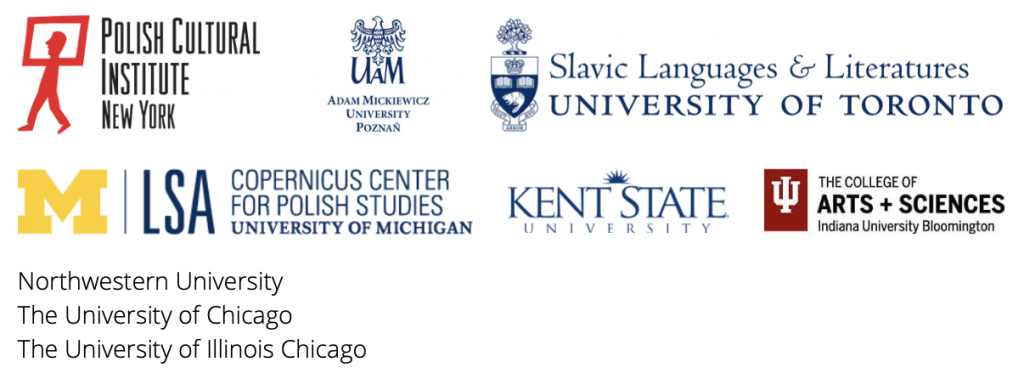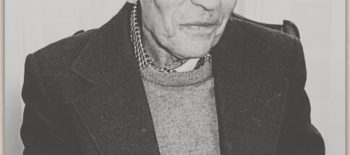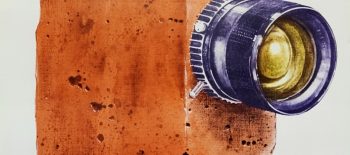July 1, 2021
Episode 6 and all video recordings will be available at:
Polish Cultural Institute New York YouTube
Encounters with Polish Literature is a new video series for anyone interested in literature and the culture of books and reading. Each month, host David A. Goldfarb will present a new topic in conversation with an expert on that author or book or movement in Polish literature. More about the Encounters with Polish Literature series and the timeline.
In the aftermath of the Second World War, Tadeusz Różewicz (1921-2014), played a pivotal role in the transformation of poetic language in Poland from the formal and lexical experimentation and avantgardism of the interwar period to the streamlined, minimalist, simple language of the postwar era. Writing in plain verse often without capital letters or punctuation, eschewing classical forms, he sought a new language that could not hide anything and that could represent a truth that any reader could understand, though there might be complex philosophical questions underlying it.
Różewicz was born in the small town of Radomsko, south of Łódź, and did not have the academic pedigree of writers like Czesław Miłosz or Zbigniew Herbert. He fought in the underground Home Army during the war. His elder brother Janusz was killed by the Gestapo—a loss that he reflects upon in many of his works. He spent much of his life in Wrocław and was selected as the city’s Honorary Patron of Culture. In 2000, he received Poland’s highest literary prize, the Nike award, for his collection, Mother Departs. He received the Polish PEN Club award, the European Prize for Literature in Strasbourg and the Gloria Artis medal for culture, which might be seen as the Polish counterpart to the Kennedy Center Honors in the United States. Though he did not complete a college degree, he received several honorary doctorates from the University of Warsaw, Jagiellonian University, the Academy of Fine Arts in Wrocław, and the University of Gdańsk, among others. The collection, Sobbing Superpower, translated by Joanna Trzeciak Huss, was shortlisted for the Griffin Poetry Prize in 2012.
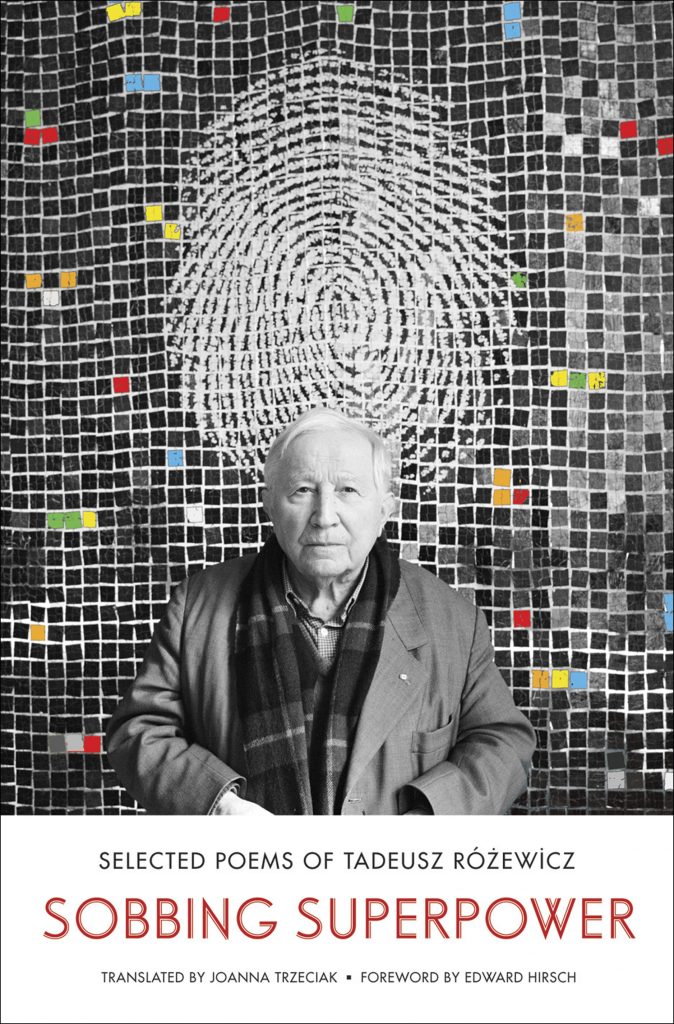
In this episode of Encounters with Polish Literature, with translator Joanna Trzeciak Huss, we focus on Różewicz’s poetry, though he was also a novelist, author of screenplays, and an important playwright who expressed a more absurdist vision in his works for the stage. The discussion begins with his reactions to the War and to the Holocaust in his iconic works that Trzeciak Huss translates as “Survivor” and “In the Middle of Life.” We look at the title poem of the collection Sobbing Superpower, and we take on some of his dialogues with Ezra Pound (who he knew in German translation) and German philosopher, Martin Heidegger, both of whom were important influences on Różewicz, but were at the same time implicated as fascist sympathizers and antisemites. Looking at the poet’s late stage, in the long period after his cancer diagnosis, we look at his atheism as expressed in his poetry as well as in his two religious funerals, which Trzeciak Huss attended. Along the way we gain some insight into how Trzeciak Huss worked as a translator with Różewicz, how they met, and how he came to trust her, though he was unable to evaluate the translations in English.
At the end of the discussion, Prof. Trzeciak Huss says a few words about the Program in Translation Studies at Kent State University.
Selected English translations of the poetry of Tadeusz Różewicz:
Mother Departs. Tr. Barbara Bogoczek. London: Stork Press, 2013.
New Poems. Tr. Bill Johnston. New York: Archipelago Books, 2007.
Recycling. Tr. Tony Howard and Barbara Plebanek. Todmorden, Lancashire, UK: Arc Publications, 2001.
Sobbing Superpower. Tr. Joanna Trzeciak. Foreword by Edward Hirsch. New York: W.W. Norton, 2013.
“The Survivor” and Other Poems. Tr. Magnus J. Krynski and Robert A. Maguire. Princeton, N.J.: Princeton University Press, 1977.
They Came to See a Poet, 3rd ed. Tr. Adam Czerniawski. Manchester: Anvil Press, 2011.
Recommended Background:
More extensive literary biography on culture.pl
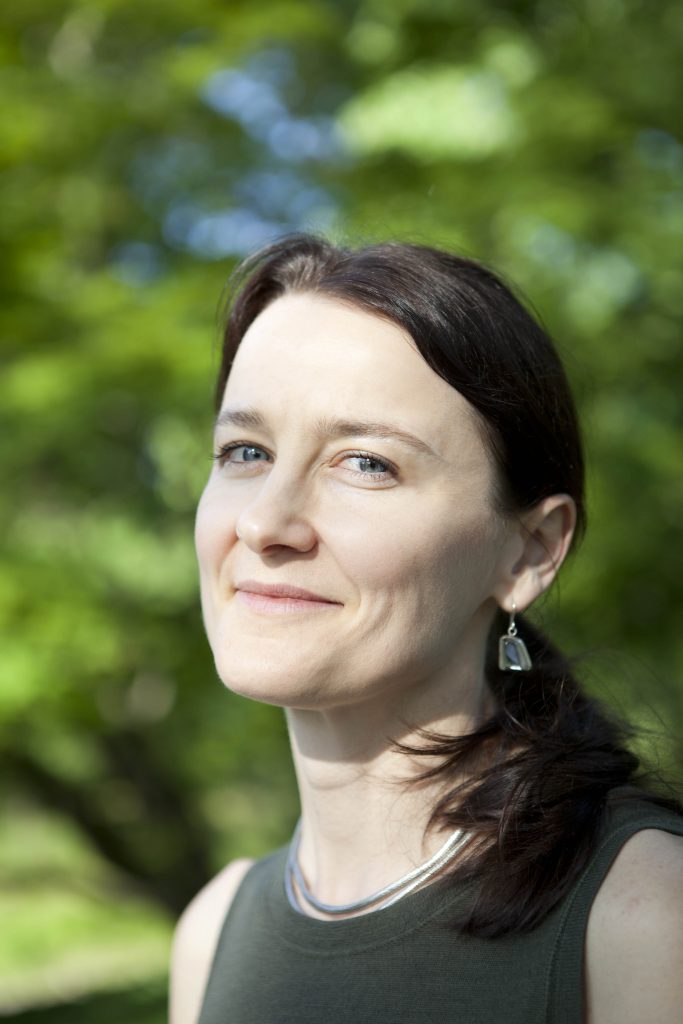
Joanna Trzeciak Huss is associate professor of Russian and Polish Translation and Translation Studies at Kent State University. Her research concerns collaborative translation, self-translation, twentieth and twenty-first century Russian and Polish literature, and issues at the intersection of literature and philosophy. She has written on the poetry of Anna Akhmatova, self-translation of Vladimir Nabokov, the poetry of Tadeusz Różewicz, and translation as palimpsest. She is editor of the Spring 2021 special issue of The Polish Review devoted to Nobel Laureate Olga Tokarczuk. Her literary translations from Polish and Russian have appeared in The New York Times, The New Yorker, Times Literary Supplement, Harpers, The Atlantic, The New Republic, Virginia Quarterly Review, Beloit Poetry Journal, Paris Review, Field, Czas Kultury, Zvezda, Boston Review, nonsite, and New Ohio Review, among others. Her books of poetry translation include Miracle Fair: Selected Poems of Wisława Szymborska (W.W. Norton), winner of the Heldt Translation Prize, and Sobbing Superpower: Selected Poems of Tadeusz Różewicz (W.W. Norton), shortlisted for the Griffin Poetry Prize and winner of the Found in Translation Award and the ATSEEL Award for Best Scholarly Translation. Her Firebird: Collected Poems of Zuzanna Ginczanka is coming out from Zephyr Press in 2022. She has been the recipient of Fulbright, IREX and NEH Fellowships and the 2020 Michael Heim Prize for Collegial Translation.
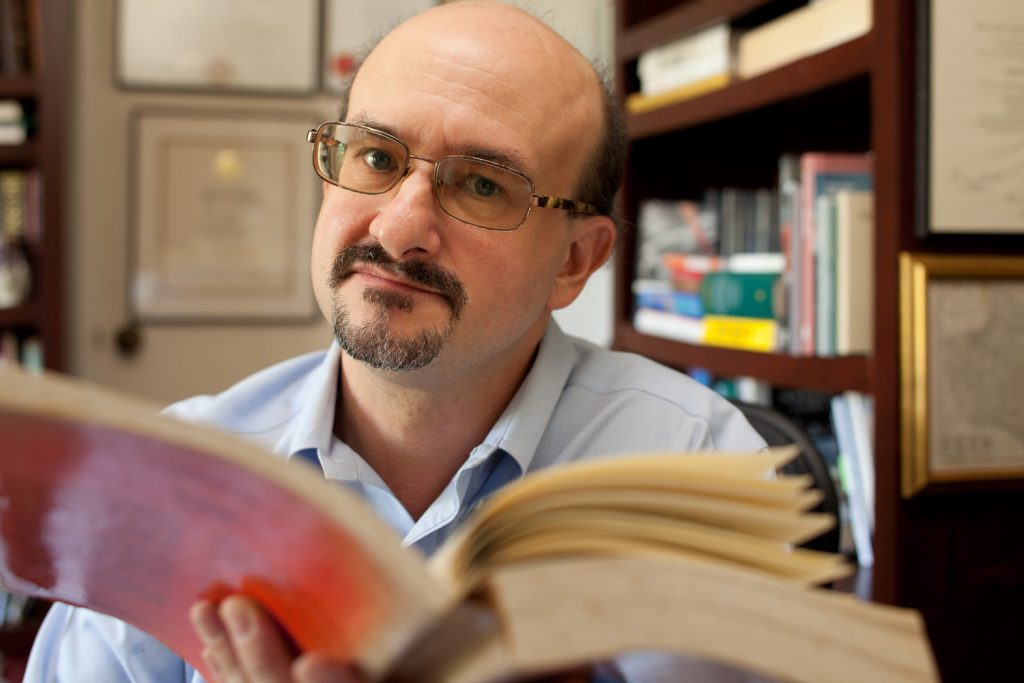
David A. Goldfarb is an independent scholar of Polish literature and literary theory, a literary translator from Polish to English, and a liaison for Polish authors to US publishers. In 2018 he translated feature articles and interviews from Wysokie Obcasy—the weekly women’s supplement to Poland’s main independent daily paper Gazeta Wyborcza—for Newsmavens.com, a pan-European women’s news portal. From mid-2010 to the end of 2013, he was Curator of Literature and Humanities Programming at the Polish Cultural Institute New York, a diplomatic mission of the Ministry of Foreign Affairs of the Republic of Poland. Prior to that he served as Assistant Professor of Slavic Literatures and Comparative Literature at Barnard College, Columbia University.
He holds a doctorate in Comparative Literature from the Graduate Center of the City University of New York as well as an M.A. in Slavic Languages and Literatures from the University of Toronto, and a B.A. in Philosophy from Cornell University and Deep Springs College. He has published articles on Bruno Schulz, Zbigniew Herbert, Stanisław Ignacy Witkiewicz, Mikhail Lermontov, and East European cinema in such journals as East European Politics and Societies, Indiana Slavic Studies, Philosophy and Literature, Prooftexts, The Polish Review, Slavic and East European Performance, and Jewish Quarterly, and he has published book chapters on Jozef Wittlin, Witold Gombrowicz, and Nikolai Gogol and Giuseppe Arcimboldo. He has written the introduction and notes for Tolstoy’s “The Death of Ivan Ilych” and Other Stories and Turgenev’s Fathers and Sons for the Barnes and Noble Classics series, and for the Penguin Classics edition of the The Street of Crocodiles and Other Stories by Bruno Schulz.
Lead image: Found in Translation award seminar at The Ohio State University with Joanna Trzeciak, 2012.
Bartek Remisko, Executive Producer
David A. Goldfarb, Host & Producer
Natalia Iyudin, Producer
This project is part of 21-anniversary celebration of Polish Cultural Institute New York.
Partners:
